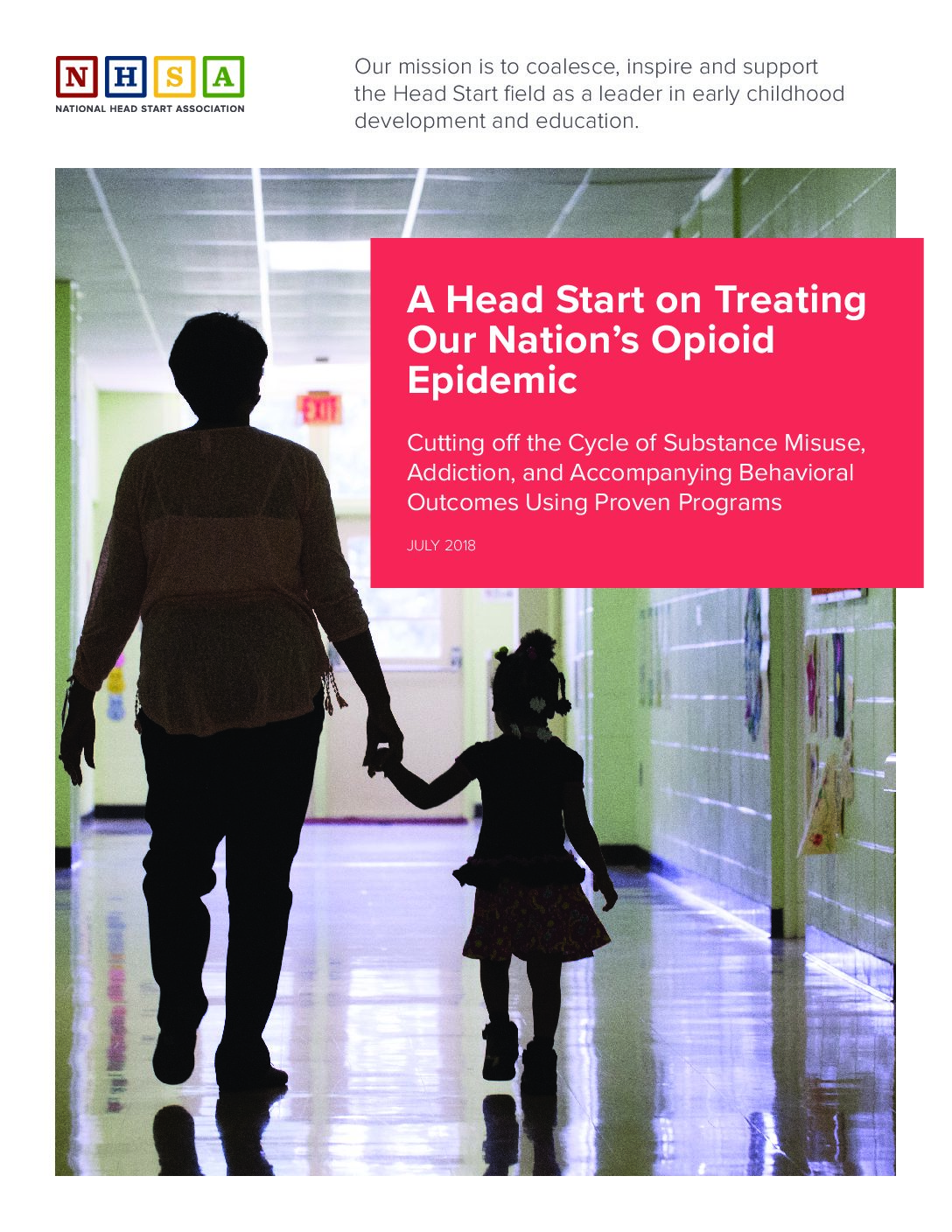In the United States, 115 people will die today from opioids. Every 25 minutes, a baby is born addicted to drugs. Children are often the unseen victims of substance misuse. As the opioid crisis continues to worsen in communities across the country, Head Start programs have not stood on the sidelines.
In rural towns, inner-city neighborhoods, and everywhere in between, Head Start programs across the country are increasingly using their unique and influential position as a community-embedded provider of comprehensive services to treat children and families suffering from substance misuse. When there is a need identified, Head Start programs use limited existing resources or outside funding to develop new and innovative models specifically targeted toward early childhood trauma related to opioid and substance misuse.
As the challenges that children and families face evolve, Head Start has too. Because the growing opioid crisis demands a comprehensive solution, Head Start programs across the country have proven to be effective interventions for children and families impacted by substance misuse.
Activating the potential of Head Start would alleviate suffering for tens of thousands of children, change the life trajectories for parents caught in the throes of the opioid epidemic, and save American taxpayers hundreds of millions of dollars in long-term costs. It is time to invest in what is already working and expand Head Start’s capacity to treat children and families harmed by the opioid crisis now.
Recommendations
Examples of successful interventions and partnerships led by Head Start exist in communities across the country. Head Start grantees, particularly those in regions severely impacted by opioids, need training and programming support to identify signs of home substance misuse, respond to children exhibiting increased developmental and behavioral challenges, and increase skills to intervene with families and children grappling with the many dimensions and tragedies of opioid addiction.
With targeted funding, Head Start can help reduce the societal costs of substance misuse by supporting the healthy development of drug-exposed children, helping these children “catch-up” to their peers while providing interventions for parents and families.
NHSA’s policy white paper recommends that federal lawmakers create a grant program to increase Head Start’s capacity to make a meaningful difference in the lives of thousands of opioid-affected young children. Specifically, Congress should appropriate dedicated funding to the HHS Office of Head Start that can be used for the following purposes:
- Provide existing Head Start programs with new resources to implement multi-tiered, proven models of intervention and support for children and families suffering from opioid and other substance misuse in their communities.
- Increase personnel capacity of programs to identify children in need of trauma support or behavioral health services and connect them to the best resources.
- Provide training for Head Start program staff on how to prevent, identify, and mitigate the effects of trauma.
- Support analysis to evaluate impacts of the treatment on a deeper level.
Opioid Working Group
In April 2018, NHSA convened a working group of Head Start and Early Head Start program leaders from around the country to discuss existing models, best practices, outcomes data, and resource requirements for these models. A special thanks to the Head Start practitioners and experts from across the country who not only are committed to doing this critical work in their local communities every day, but who also contributed their time to informing the policy white paper.

